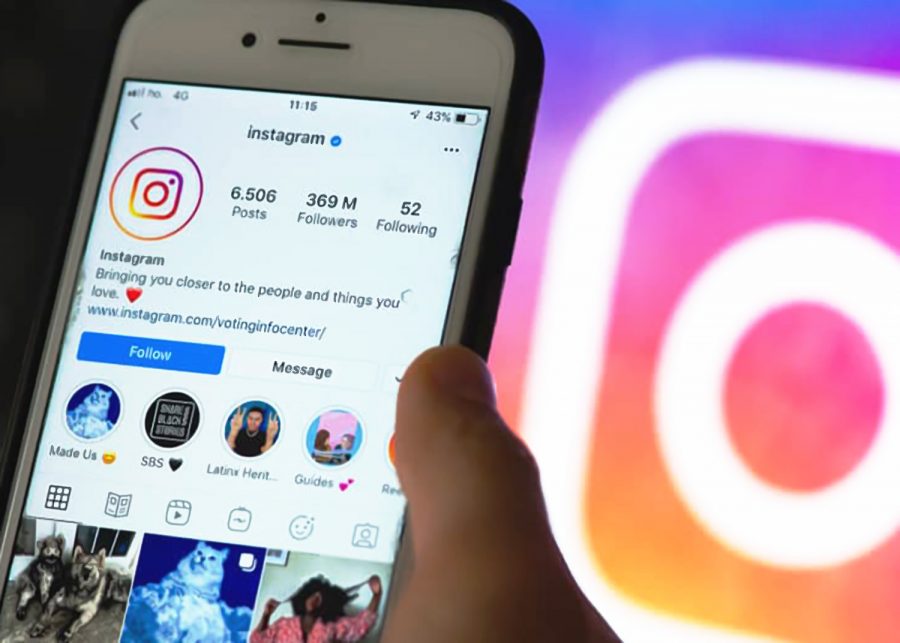Social Media Doesn’t Have to Be Unhealthy
Social media platforms are an integral part of society today, with people worldwide relying on such apps to connect with friends and family, share stories and keep up with the latest trends. But social media is designed to be addictive, and with such a strong emphasis in pop culture, many teenagers have great trouble limiting their excessive usage. In order to effectively curb social media overuse, students should monitor their screen time.
A precursor to limiting social media use is understanding its main uses. Social platforms provide users with a sense of connection, allowing people to keep in touch with friends old and new, loved ones, coworkers and classmates. In addition, social media is a convenient space to voice opinions and share news. The constant short stimulus of social media, however, is a crucial aspect that contributes to its addictive nature. This leaves people craving this stimulus when bored or looking for a distraction. As a result, apps like Instagram and Snapchat transform from sites of connection to sites of compulsive scrolling and insecurity.
Parker Hastings (III) acknowledges his habit of opening up social media apps “all the time basically. But […] I’m not proud of it, I’m not proud of my phone usage.” To escape the constant need for stimulation is a universal struggle. By even going without social media for a short time, students can feel anxious and left out. Recognizing the causes of the invisible strings that tether one to the online community will result in more effective efforts to maximize one’s time both on and off the apps.
Mr. Andy Zou, a history and English teacher at Boston Latin School, shares a similar struggle. “It’s terrible because I’ll be like scrolling, scrolling, scrolling and then I’ll be like, oh man, that was a great 30 minutes. I look at the time, and that was two hours!” Most students can probably relate to this experience, and like Mr. Zou, have tried limiting their app usage to little avail in order to combat their excessive use. Instead of simply taking a blanket time limit approach, however, students should try avoiding certain features and set aside set times to fully gain the most out of the social media experience.
When finding oneself distracted by nagging notifications, it is best to turn off the notifications and be selective on which notifications one receives, especially getting rid of those that are not as important, such as Instagram Lives, follows and likes. Turning off notifications makes it harder to open the app by clicking on the notification, therefore further discouraging usage. Furthermore, students should try moving the app around to hard-to-find places like the next page, upper corners or categories on the home screen to make it physically harder to open. Even going as far as deleting the app and accessing it through website browsers will greatly discourage mindless usage.
Avoid opening the app multiple times throughout the day but set a fixed time period to solely catch up. Especially steer clear of checking notifications first thing in the morning, as it allows other people’s thoughts and requests to pollute your thinking. According to Dr. Nikole Benders-Hadi, a board-certified psychiatrist, “Immediately turning to your phone when you wake up can start your day off in a way that is more likely to increase stress and leave you feeling overwhelmed.” Keeping the first few moments of the day to oneself brings a sense of organization and structure that increases productivity and decreases procrastination.
Limiting social media use has grown increasingly difficult as apps like Instagram have adopted new features, combining short videos, shopping and messaging all in one. With so many features, it is important to identify what is actually worth spending time on. Before tapping on the explore page, reevaluate and acknowledge the consequences of scrolling. If trying to catch up on the latest news, turn to other applications or news channels. If trying to connect with friends or family, understand that it is not necessary to constantly check up on their lives, and that social media only captures the best moments in someone’s life.
Long periods on these apps can cause one to lose perspective on reality and develop unrealistic standards. Mr. Zou speaks from experience, saying that Instagram “creates a toxic mindset that you have to look a certain way and to be a certain way to spend lots of money.”
Taking measures to be aware of how one is interacting with social media platforms — such as avoiding the explore page, Instagram’s additional features and scheduling specific times — will help one to successfully balance the stimulus of social media. Start small and as Hastings says, “Just put it down.”







